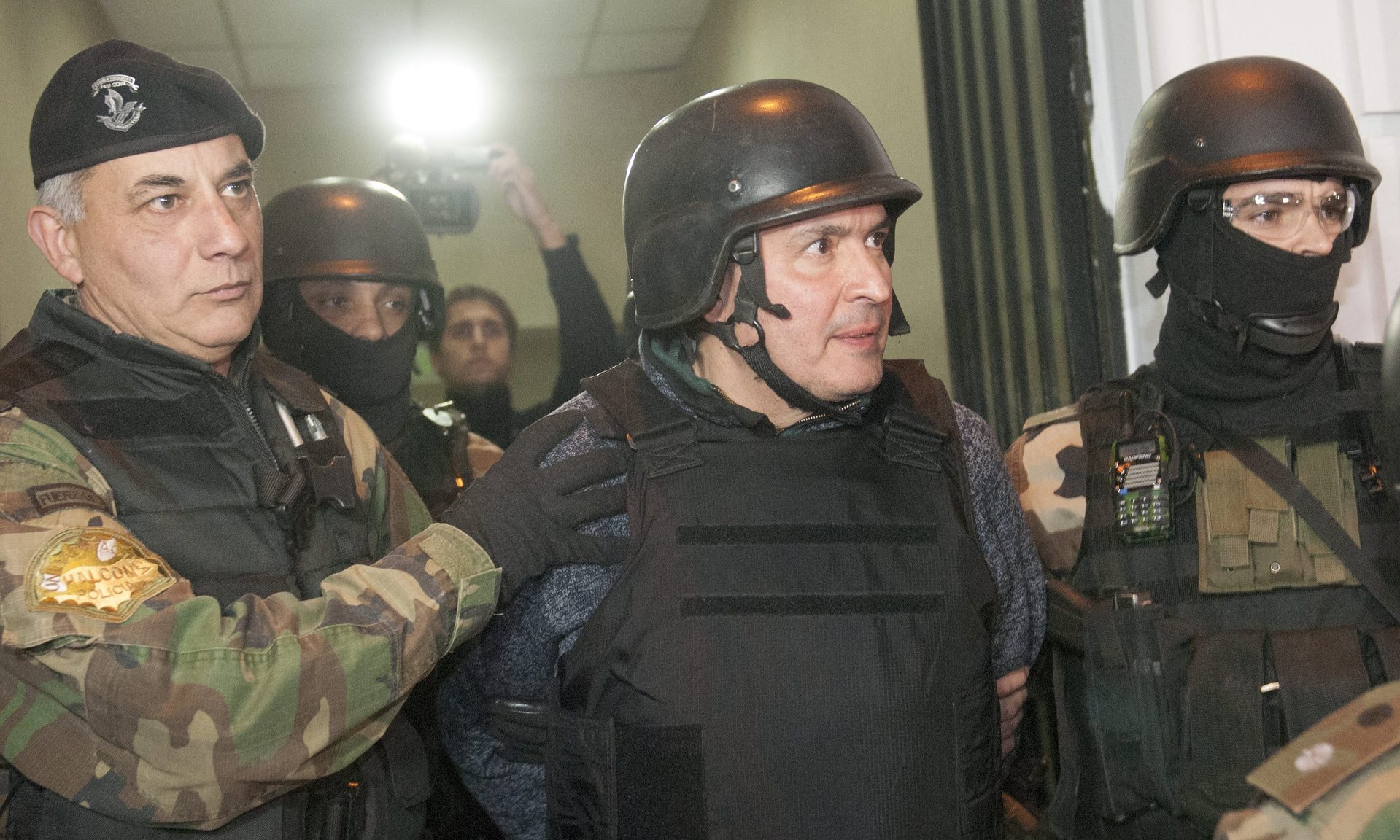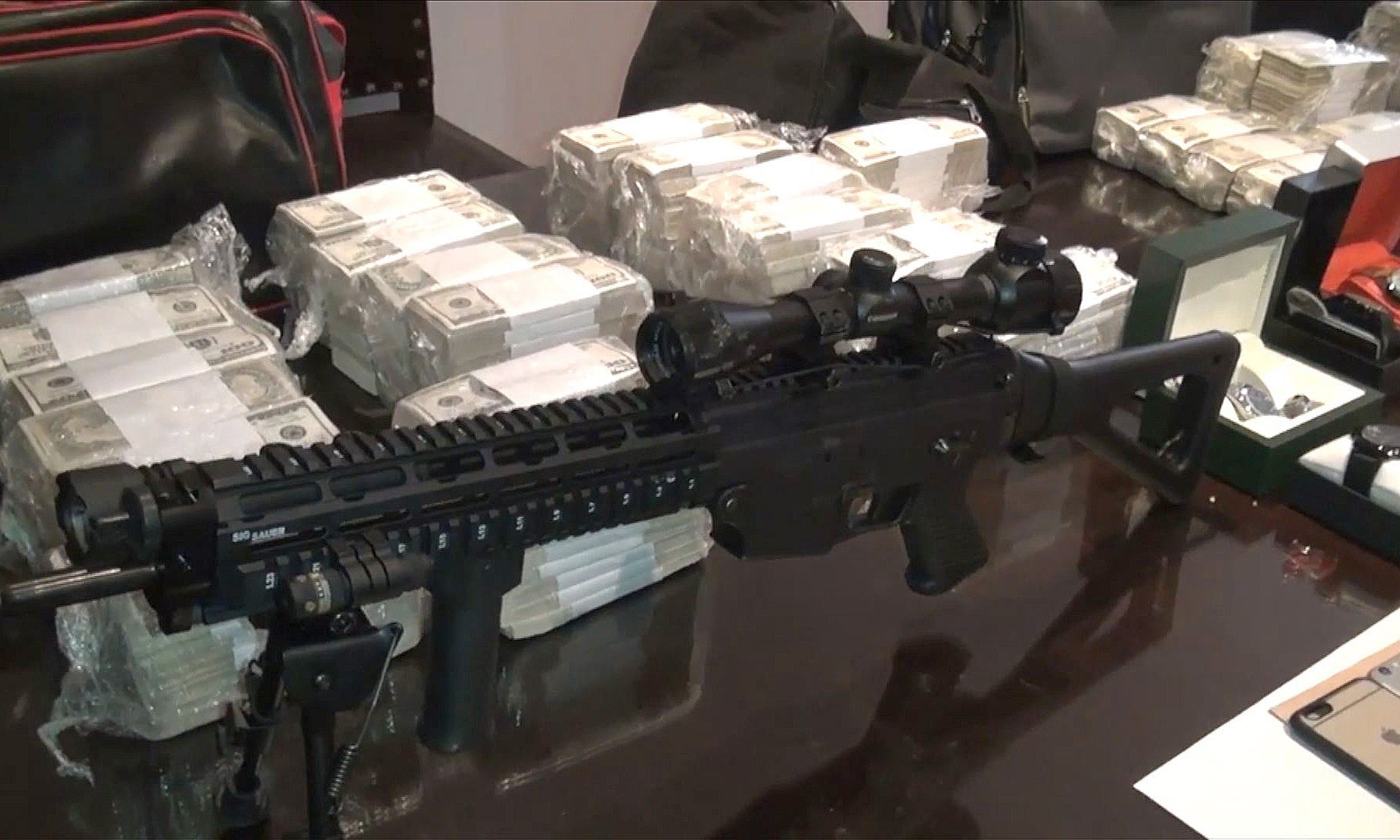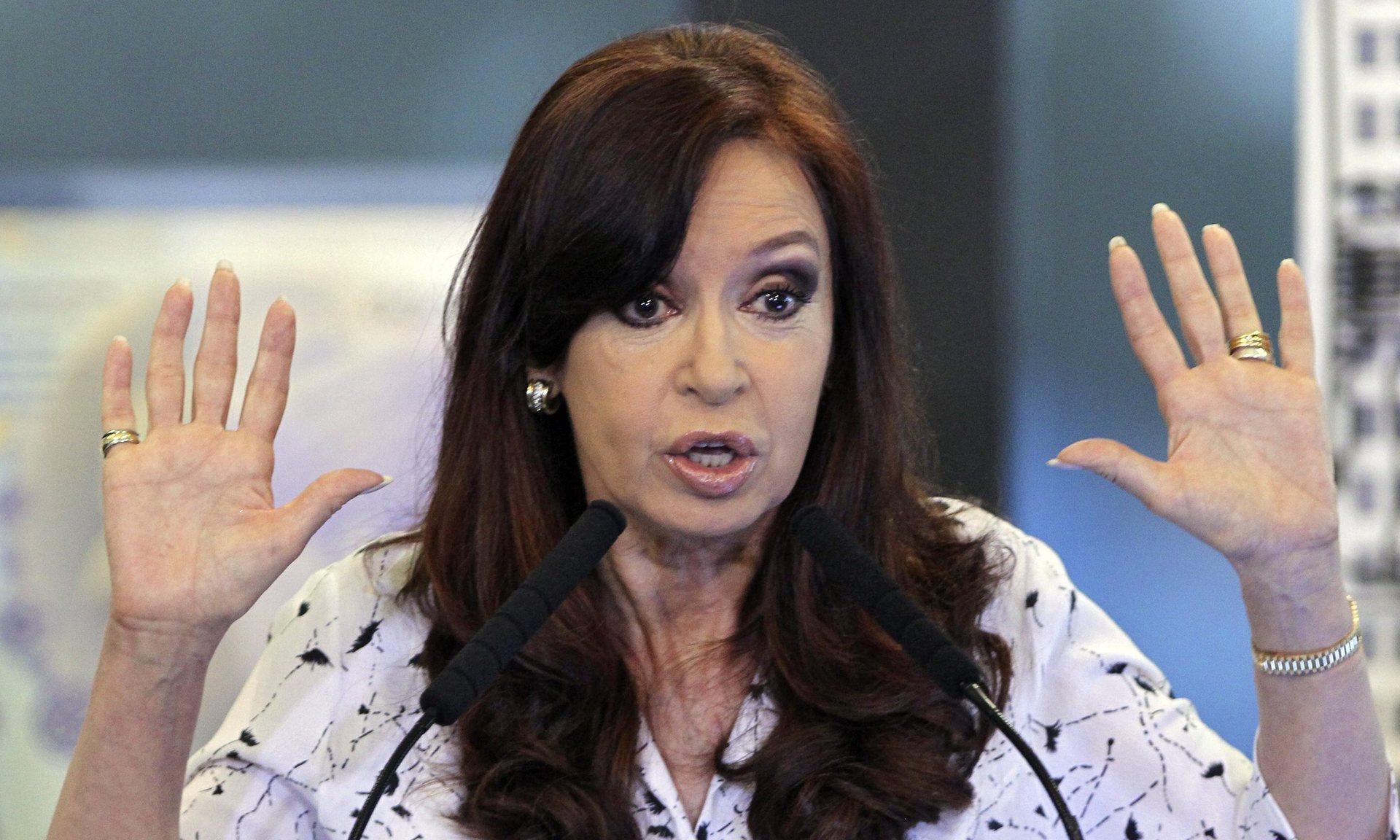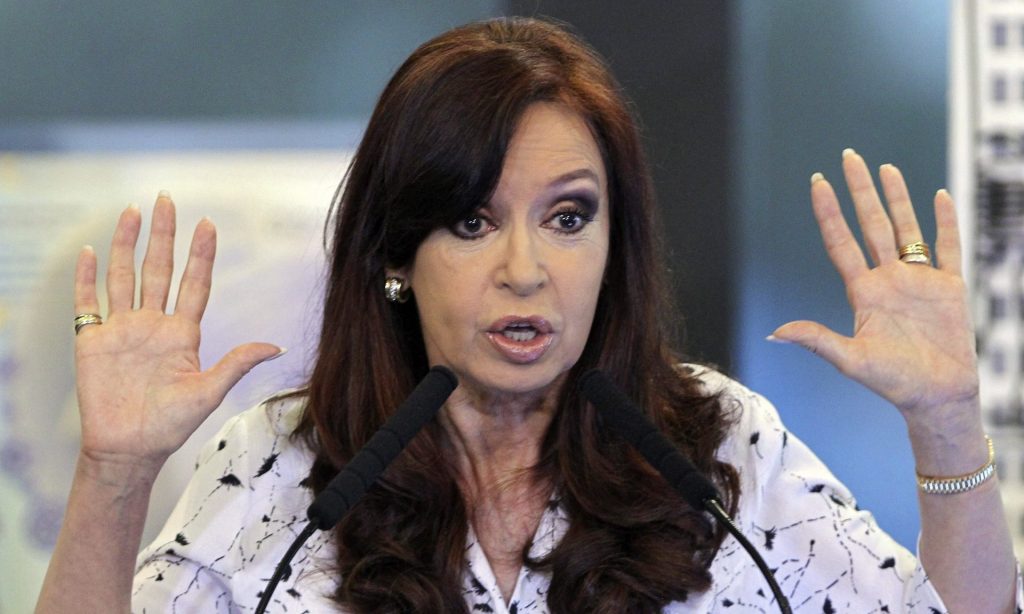
Photograph: Stringer/EPA
The sight of a middle-aged man throwing sacks of cash over the walls of a convent before dawn was always likely to attract attention in the quiet Buenos Aires suburb of General Rodríguez.
But what started as a neighbourhood curiosity on Tuesday morning has since grown into a nationwide political drama that threatens to tarnish the legacy of former president Cristina Fernández de Kirchner and complicate relations between the Argentinian government and the Catholic church.
A neighbour of the Our Lady of the Rosary of Fatima convent was alarmed to see a stranger tossing black plastic sacks into the grounds, and then clambering over the fence after them.
Fearing for the safety of the three elderly nuns inside, the neighbour called the emergency services. When police arrived at 4am, they found that the man was José López – the former public works secretary, a junior ministerial position, in the Fernández administration.
He was with the nuns – in their 80s and 90s – and surrounded by the bags he had thrown over the fence. These, and a red carry-on bag, turned out to be filled with wads of plastic-wrapped dollar bills and other valuables. In all, he had $8.9m.
López at first claimed to be a church official, and then allegedly offered the police officers a bag containing $1m. He was arrested on suspicion of illegal possession of a firearm after the officers found a semi-automatic rifle in his car.

Photograph: HO/AFP/Getty Images
The case has since gripped the nation, with round-the-clock TV coverage. López’s eccentric behaviour at a court hearing has only added to the speculation about his motives.
On Thursday morning, news broadcasts reported that it took three court guards to escort López into court, where he refused to testify before federal judge Daniel Rafecas.
Despite being declared fit to testify by court psychologists, López seemed distracted when he addressed the judge and claimed not to remember his birth date.
Lopez’s lawyer said he was mentally unfit to stand trial. “He hears voices. He’s delirious. He has hallucinations,” said Fernanda Herrera, who is better known as a cumbia singer and former model.
The arrest has cast a pall over the reputation of still-popular former president Fernández, who until now seemed immune to rumours that she and her former husband Néstor Kirchner, who died in 2010, had amassed vast quantities of cash from public works contracts during their 12 years in office between 2003 and last year.
López, who served as public works secretary for those 12 years, is reported to have been extremely close to both Kirchner and Fernández since the start of his political career 25 years ago.

Photograph: David Fernandez/EPA
In a message on her Facebook page, Fernández denied any links with the case. “Somebody gave Mr López the money he held in his possession. And it wasn’t me.”
Fernández pointed a finger at the business sector. “When somebody receives money while in public office it’s because they got it from the private sector.”
Exactly how López acquired the money is now the focus of the investigation. It took the police a day and a half to count the wads of damp bills that were stuck together, suggesting they had been stored underground.
Many questioned whether they might be linked to the testimony of Leonardo Fariña, a protected witness who earlier this year shocked Argentina with a court confession that he laundered tens of millions of dollars for Lázaro Báez, the owner of a construction firm who was awarded public works contracts worth hundreds of millions of dollars under the Kirchners.
Fariña alleged that Báez was a front man for the presidential couple and had buried a huge fortune in remote farms in southern Argentina.
The arrest of Báez in a money-laundering investigation earlier this year and the live broadcasts of dollar-sniffing dogs circling earth-movers digging the barren landscape of Patagonia in search of missing cash has already tarnished the image of the former presidential couple.
Even the imposing mausoleum where Néstor Kirchner lies buried in his home town of Río Gallegos in Patagonia has been raided by police in search of evidence to link the Kirchners to Báez.
Fernández, who had still hoped to retake the presidency in the 2019 elections, has not been accused of any crime and denies any wrongdoing regarding the López case. She has been indicted in a separate court investigation regarding dollar future contracts authorised by her in the final months of her presidency that resulted in multibillion losses to Argentina’s central bank.
López’s arrest also sent shock waves through the Catholic church. Until April, the Fatima convent was the residence of Bishop Rubén Di Monte, a churchman with close ties to former president Fernández and her former planning minister Julio De Vido, López’s immediate superior.
Concern about possible links between the church and Argentina’s rampant political corruption seem to have partly motivated Pope Francis last week when he returned a $1.2m donation from the government of the current centre-right president, Mauricio Macri, to the pope’s international Scholas educational charity.
In a letter made public on Thursday by the Vatican Insider, Francis asked the Argentinian chapter of Scholas to return the donation saying that he feared accepting it could “start to slide on the road towards corruption”.
“I would prefer a joyful game in a neighbourhood yard with an ordinary ball than a great championship in a famous stadium that is tainted with corruption,” Francis said in his letter.
It had earlier been revealed that the pope had also objected to the figure of the sum in Argentinian currency, which was 16,666,000 pesos. “I don’t like the 666,” Pope Francis said in a postcript to the letter.

